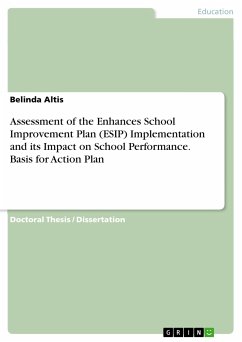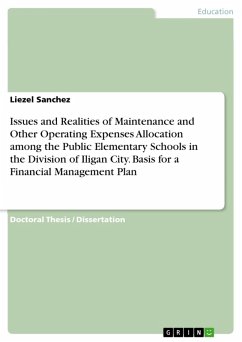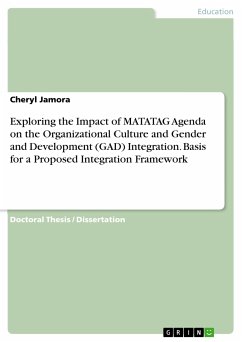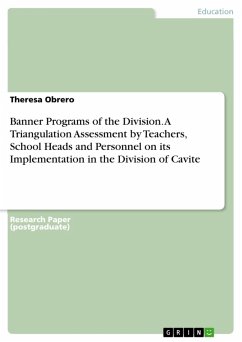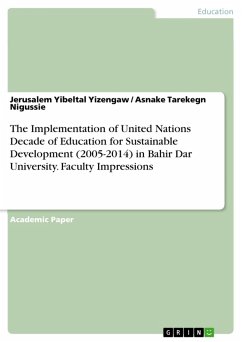Doctoral Thesis / Dissertation from the year 2024 in the subject Pedagogy - School System, Educational and School Politics, grade: Post Graduate, , course: Doctor of Philosophy in Education, language: English, abstract: This paper assesses the implementation of the Enhanced School Improvement Plan (ESIP) and its impact on school performance among six public schools, selected using simple random sampling, in the Division of Manila. Anchored on the Effective School Improvement (ESI) model by Stoll, et al. (2006, 2002), the study uses both quantitative and qualitative research techniques. The use of an exploratory mixed methods research design as espoused by Creswell (2003) is adapted by the researcher. This mixed methods research design calls for the collection and analysis of data in two consecutive phases of a single study: first, quantitative data, and then qualitative data. While theme analysis was used to analyze the data from the qualitative phase, percentages and weighted averages were calculated for the quantitative phase's data using the Statistical Package for Social Sciences (SPSS). After careful analysis of data which were treated both qualitatively and quantitatively, results showed that the Division of Manila's Enhanced School Improvement Plans were carried out with success. By establishing an efficient, open, and cooperative system for governing and managing basic education, the ESIP guided the school principals in making sure that every kid in their community has access to a high-quality education.
Dieser Download kann aus rechtlichen Gründen nur mit Rechnungsadresse in A, B, BG, CY, CZ, D, DK, EW, E, FIN, F, GR, HR, H, IRL, I, LT, L, LR, M, NL, PL, P, R, S, SLO, SK ausgeliefert werden.

